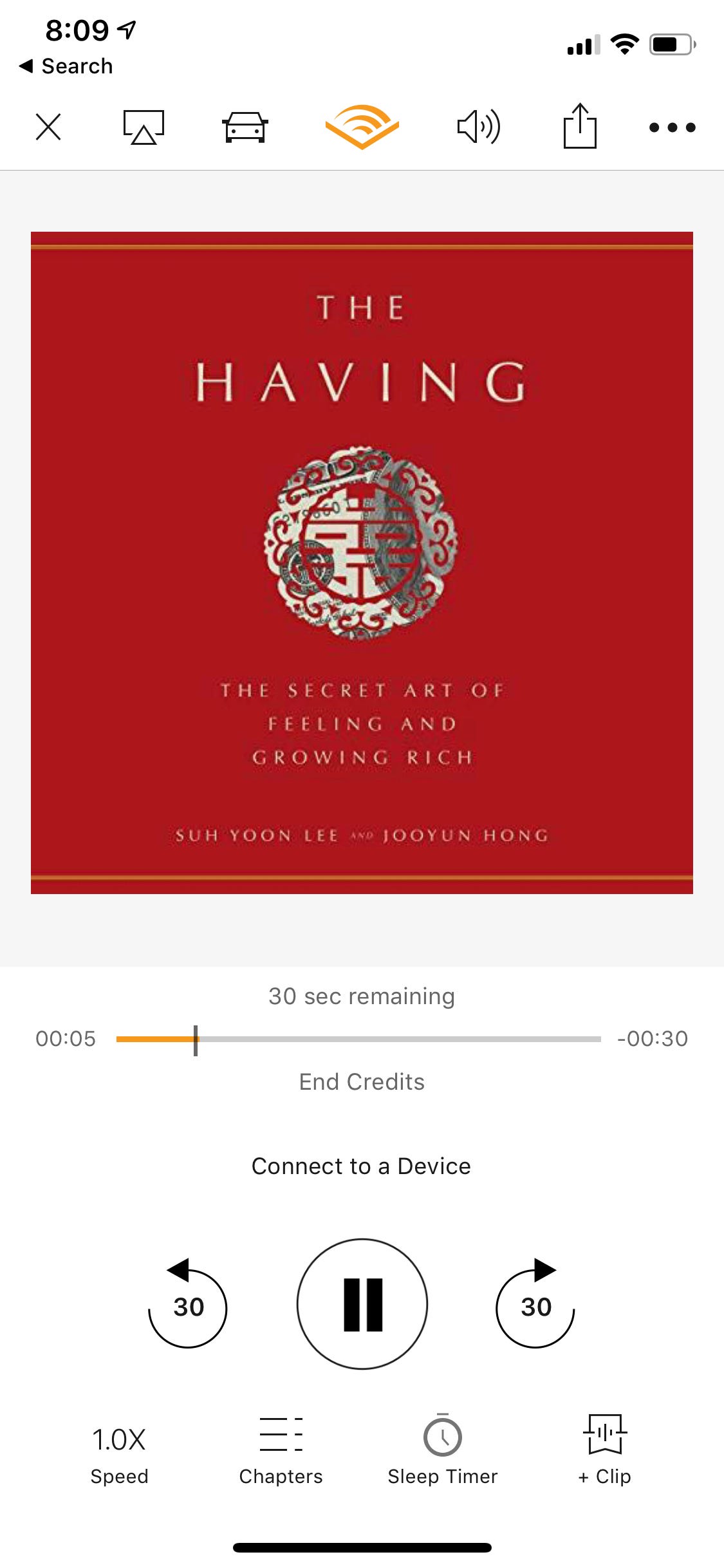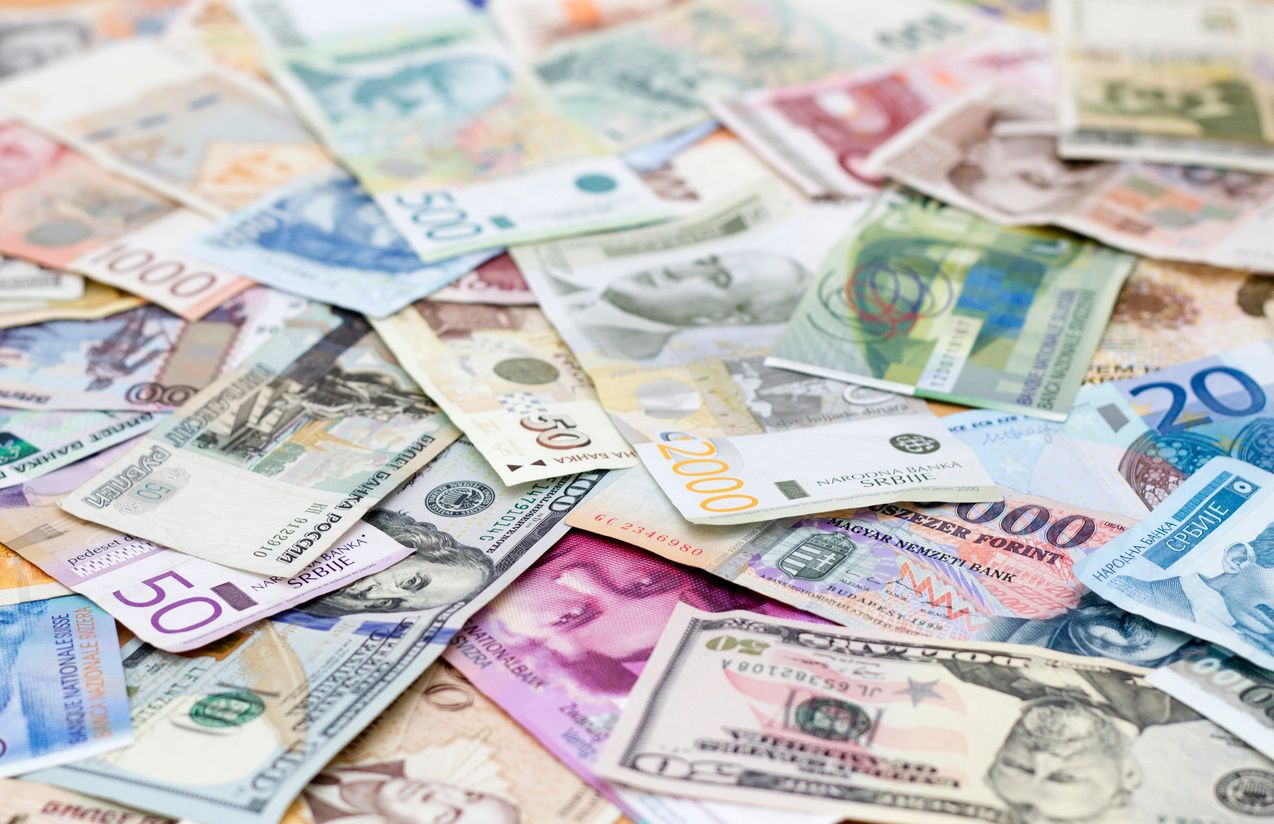It could have been a coincidence, but according to Jooyun Hong, the author of the book, “The Having”, and the guru that guided her through her journey, Suh Yoon Lee, there is no such thing as a coincidence.

Last Friday, practically, 2 days ago, I coincidentally met a friend that I haven’t seen or caught up with for a long time. We stopped for a short yet inspiring conversation and he recommended me this book, “The Having”. He actually said he finished this book at least 5 times! I mean the book was just published in February 2019.
I literally finished listening to it on audible in exactly 2 days, Saturday and today Sunday. With every chance that I can get to listen to it, I would take it, whether if it was getting ready in the morning, at the gym, in my long dreadful commute or even when painting my nails. I was hooked.
If didn’t have to go to work, I would have listened to it all night long.
In fact, I was listening to another book, “Hooked”, and practically I had less than half an hour left to finish, but I just couldn’t go back to “Hooked”, I was figuratively hooked on listening to “The Having”.
You see, before my quest for saving, I was enjoying the money I make as much as I can, I would go out, I travel, I buy things. Ever since I started earning my first paycheck, I was enjoying the money. I was enjoying the money and the pleasures it was bringing me but I was still not practicing “Having”. I had bad days where I blamed so many things when I focused on my shortcomings and my disappointments.
Saving was not really on my mind. Unlike Jooyun, I didn’t save, but yet, when I did need the money, I started blaming myself, for buying this, getting that or dining at that expensive restaurant. “I could have saved,” I blamed myself.
Then I started my journey to save, and when I started, I began to feel uneasy about money, I was miserable. I couldn’t enjoy anything. #SavingMode was my motto. I planned a trip then I felt guilty for the money I have spent, even though it was an incredible trip that introduced me to incredible people.
In my attempt to get rid of the clutter and let go of the things I don’t love, I was reluctant. “But I have spent so much money for it,” I felt attached.
When it came to money, whatever used to be normal, and whatever used to make me happy, didn’t anymore.
I have only started to feel slightly better after trying to have a vision for myself. It was a blurry vision. It is still vague but made me feel slightly better. This unease about money was stumbling my progress, my appreciation of my achievements. I wasn’t enjoying. Like Suh Yoon Lee said to Jooyun Hong, I wanted it too much, which made me think of what I am lacking rather than my current fortunes.
I couldn’t enjoy and that felt like the end of my happiness… and to top it off, in my mind, I thought I would be like that for a few years, not just a few months, which to be honest didn’t paint a pretty picture.
But then, I listened to “The Having”.
I was proud when I felt that some of the principles of this book I already apply. I felt I am on the right track, but if you ask me: Do I follow everything in the book? No, not yet.
I would summarize the secret ingredient of this book in two words.
Gratitude and emotion.
How you feel when you are spending your money shapes your future fortune. If you feel abundance, you will attract abundance. If you feel scarcity, you will attract scarcity. As easy as it sounds, if you are not aware of your emotions, you might be doomed. Knowing is not enough, applying is everything.
One example resonated very strongly with me.
If you are having dinner now at an expensive restaurant, how would you feel, if you knew that the next month,
- You will be out of a job and not have a salary
- Your salary will be 10X of what you are making now
In both scenarios, you are spending the money, you are paying the bill… but how you feel about it makes all the difference in the world.
You need to enjoy what you have now as you have it… and you need to feel gratitude for it.
In your “Having” notes, write down how did you practice “Having” and how did you feel when you did. It will show you where you are heading. Keep it simple. Write “I have” when you are “having”, then write “I feel” to describe your emotions. You would write something like:
I am having delicious Brazilian meat for dinner. It makes me feel abundant and joyful. I am grateful for being able to afford it and for having friends who I enjoy their company while eating this meal.
My friend shared with me the 7-morning rituals of highly successful people, and one of them is writing in a gratitude journal in the morning. He told me do it for 2 weeks and watch it change your life.
Gratitude journal? “Having” notes? Is it a coincidence? Maybe not.
Jooyun doesn’t tell you to stop spending money, but rather spend it when it makes you feel good when you feel happy about it. I couldn’t be more proud of myself for adopting the new rule when shopping: If I don’t love it, I don’t buy it, check: Why did I start wearing that special occasion dress in a typical day? | Tales of an Excessive Spender
That’s actually part of “having”. I thought to myself, I am not too bad, but yet there is so much I still need to work on.
… and the good news?
It’s very doable.
In the past decade, I would say, I have read books, blog posts, videos etc. that talk about positivity, meditation, the law of attraction, bla bla bla…
This one was not a bla bla. This book spoke to my heart — to my soul. I would be lying if I would tell you I can describe the book right here right now. The one thing I can say, though, it’s awakening. It could be life-changing, and the only way I can find out is by practicing “Having” and finding out for myself.
A must listen. A must read. Depending on what you prefer, just do it. If you are saving, not saving, want to be rich, don’t want to be rich… Just read it.
